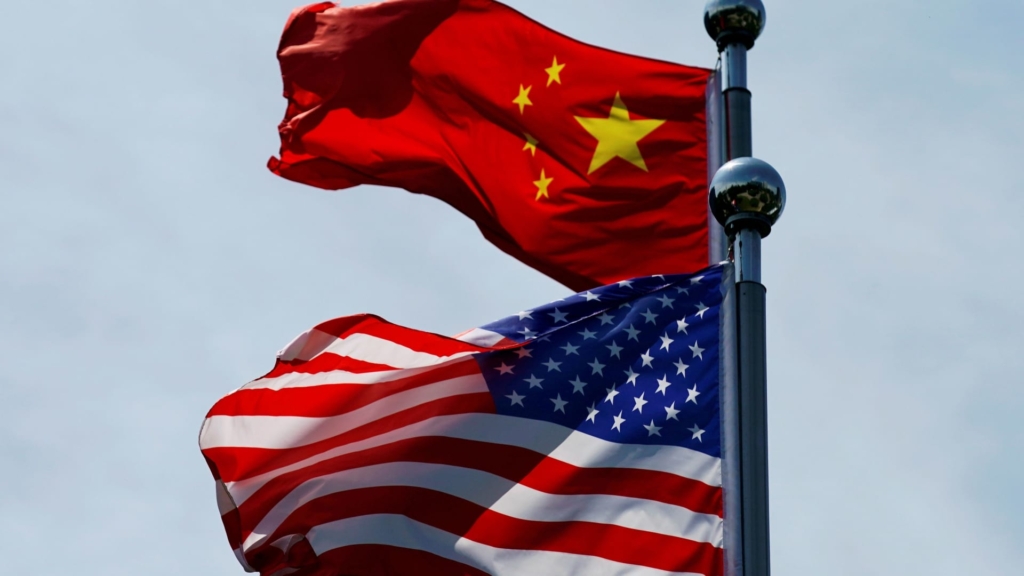BEIJING — A crucial phone call between the presidents of the United States and China on Thursday has not resolved an ongoing global shortage of rare earth exports that is raising concerns among businesses over potential disruptions to the production of vehicles and various industrial components this summer.
Critical minerals, including rare earth elements, play vital roles in the manufacturing of weapons, automobiles, and advanced technology products. China, having established itself as the world leader in the mining and production of these minerals, has progressively imposed restrictions on international sales over the past two years.
In early April, China unveiled new export controls on seven rare earth elements, though it did not clarify whether this move was a direct response to increasing tensions with the U.S.
On the same day that both nations reached a pivotal trade agreement on May 12, China’s Commerce Ministry announced it would enhance export controls on critical minerals. However, there was no indication that the restrictions on the seven rare earth elements would be lifted.
This decision caught many in Washington off guard, as expectations had arisen for a rollback of the rare earths restrictions, following the trade agreement’s terms that suggested a temporary suspension of most tariffs and countermeasures for 90 days.
To date, only a limited number of Chinese suppliers dealing with U.S. companies have received six-month export licenses for rare earths, according to the American Chamber of Commerce in China, which conducted a survey among members between May 23 and 28.
Of the survey participants affected by these controls, 75% indicated their current supplies would be depleted within three months. The restrictions predominantly impact sectors focused on research and development, industrial applications, and technology but spare consumer goods and service industries, the survey elaborated.
Although China’s readout did not reference rare earths during the conversation between Presidents Xi Jinping and Donald Trump, the engagement itself signified an ongoing dialogue between the two nations amidst accusations from both parties over violations of the trade agreement.
“I think we’re in very good shape with China and the trade deal,” Trump stated to reporters following the Thursday call. “We do have a deal with China, but we were clarifying certain points primarily related to rare earth magnets and other matters.”
While Trump provided no further details, he did mention that U.S. Treasury Secretary Scott Bessent, Commerce Secretary Howard Lutnick, and U.S. Trade Representative Jamieson Greer would meet their Chinese counterparts at an unspecified date.
Further discussions may bring the U.S. and China back to their earlier arrangements from this year, characterized by limited tariffs, according to Jianwei Xu, a senior economist at Natixis. Xu suggested that China could expedite some export approvals for rare earths in exchange for the U.S. easing restrictions on specific technology exports to China.
“Both nations have come to understand that their immediate vulnerabilities pertain less to tariffs and more to non-tariff issues, particularly in technology and rare earths,” Xu added.
Not solely affecting the U.S.
The ramifications of China’s rare earth restrictions are reverberating beyond U.S. borders as well.
Several European auto parts manufacturers have recently halted production due to these export constraints, with the industry association CLEPA reporting on Wednesday. They cautioned that broader impacts are expected in the coming weeks, noting that China has only granted approval for approximately 25% of the “hundreds of export license applications” submitted.
There are indications that China has recently relaxed some export controls for select European companies, as noted by the European Union Chamber of Commerce in China on Friday. However, it underscored that these measures remain inadequate to “avert severe supply chain disruptions for many firms.”
“Our members continue to face challenges with the export license approval process, due to delayed timelines and a lack of transparency, which is adversely affecting production lines across Europe and other regions,” stated European Chamber President Jens Eskelund.
In another related development, Japanese automotive manufacturer Suzuki Motor has temporarily ceased production of its Swift model due to the restrictions on rare earths, according to a report from Reuters, based on information from two sources. Manufacturing is expected to resume partially on June 13. A spokesperson from Suzuki Motor did not provide immediate comment when contacted by Finance Newso.
In response to questions regarding the Japanese automaker, China’s Foreign Ministry’s spokesperson Lin Jian stated, “China’s export control measures are aligned with global standards. These measures are applied in a non-discriminatory manner and are not directed at any specific nation.”
This statement echoed previous remarks made by Ministry of Commerce Spokesperson He Yongqiang regarding other restrictions on critical minerals stored outside China.
Lin also added during a separate press briefing that export license applications would be approved according to established regulations, to “facilitate convenient and compliant trade,” as per a translation by Finance Newso.
Rising export controls
The trend of China tightening its export controls on critical minerals has escalated recently.
After imposing controls in August 2023 on gallium and germanium—two metals integral to chip manufacturing—China announced similar restrictions a year later on antimony, a mineral used in munitions, nuclear weapon production, and lead-acid batteries, as well as enhancing other metals.
Shortly thereafter, China introduced a broader policy that enhanced export restrictions on products with potential military and civilian applications. The new measures include metals like tungsten, which the U.S. has classified as critical.
Tungsten, known for being nearly as hard as diamond, is utilized in weapons, semiconductor production, and industrial cutting tools. An average vehicle contains about 300 grams (10.6 ounces) of tungsten, much of which is lost during recycling, according to Martin Hotwagner, a market analyst at Steel & Metal Market Research in Austria. As supplies dwindle, he anticipates that Western companies could face a shortage of tungsten by late summer.
— Finance Newso’s Sam Meredith contributed to this report.


























